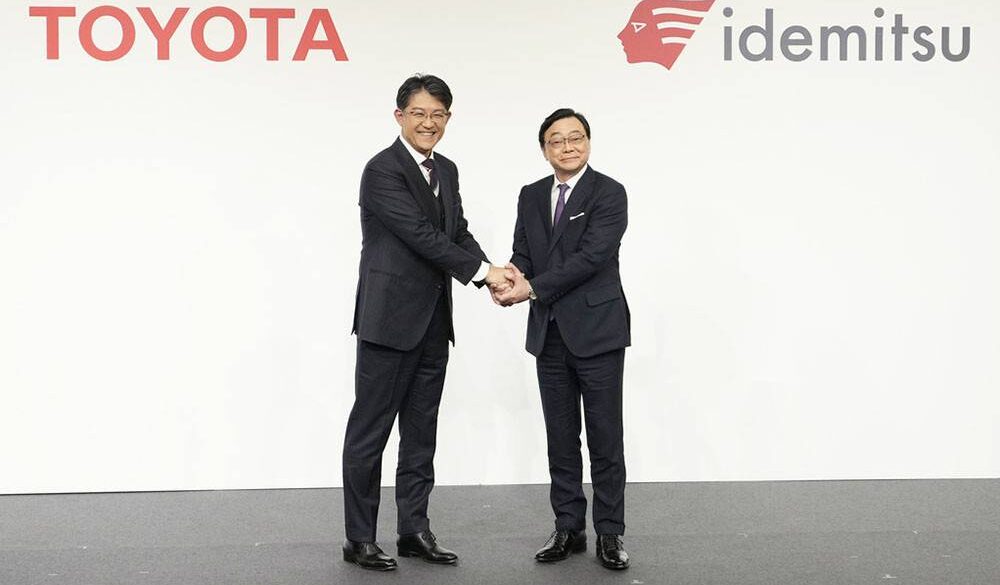Toyota, Japan’s leading automaker, has entered into a strategic partnership with Idemitsu, a major Japanese oil company, to collaborate on the development of solid-state battery technology, which is expected to play a crucial role in the future of electric vehicles (EVs). This agreement marks a significant milestone for Toyota, as the company is committed to accelerating its battery electric vehicle offerings, aiming to catch up with competitors such as Tesla and China’s BYD. Toyota’s previous focus on hybrid vehicles like the Prius, which combine gasoline engines and battery-powered motors, has contributed to its lag in the EV sector.
Toyota, renowned for its production expertise, and Idemitsu, which possesses advanced materials technologies, have set their sights on achieving the successful commercialization of solid-state batteries around 2027 or 2028, followed by full-scale mass production.
Koji Sato, Toyota’s Chief Executive, emphasized the significance of this collaboration, stating, “The future of mobility lies in the tie-up between the auto and energy sectors, including this innovation hailing from Japan.” Solid-state batteries are widely regarded as essential for the widespread adoption of battery-powered EVs. Unlike conventional lithium-ion batteries, which use liquid components and are prone to safety issues, solid-state batteries offer increased stability and potentially greater power, though they are generally more expensive.
Shunichi Kito, Chief Executive of Idemitsu Kosan Co., expressed confidence in the imminent era of solid-state batteries, highlighting the substantial progress in research and development achieved by both companies. Idemitsu has been conducting research on the fundamental technologies for all-solid-state batteries since 2001, while Toyota initiated its efforts in 2006. Recent innovations are expected to help solid-state batteries bridge the performance gap with lithium-ion batteries.
The collaborative effort between Toyota and Idemitsu centers on sulfide solid electrolytes, materials known for their flexibility, adhesiveness, and suitability for mass production. Idemitsu has developed mass production technology related to sulfide solid electrolytes through the study of by-products from petroleum refining. The companies plan to establish a substantial pilot facility for the development of sulfide solid electrolytes, with a keen focus on ensuring quality and cost-efficiency, paving the way for large-scale manufacturing.
Numerous global automakers, including domestic rival Nissan Motor Co. and American manufacturer Ford Motor Co., are actively engaged in solid-state battery research. However, there are still technological challenges to overcome.
Toyota, renowned for its Lexus luxury models and Camry sedans, is committed to introducing a commercial solid-state battery as early as 2027, with a key goal of reducing EV charging times to 10 minutes or less. The company aims to deliver 1.5 million EVs by 2026 by expanding its battery EV lineup, as it positions itself for a prominent role in the rapidly evolving electric vehicle market.
The information contained in this post is for general information purposes only. The information is provided by Toyota And Idemitsu Collaborate On Electric Vehicle Battery Technology In Japan and while we endeavour to keep the information up to date and correct, we make no representations or warranties of any kind, express or implied, about the completeness, accuracy, reliability, suitability or availability with respect to the website or the information, products, services, or related graphics contained on the post for any purpose.


